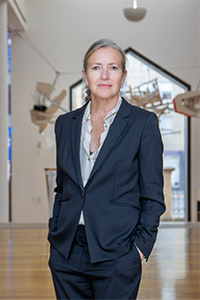Encouraging Tasmanians to bridge local divisions about vital environmental and heritage issues will be at the heart of a new partnership with a United Nations agency.
Making good decisions, with less damaging conflict, about the state’s natural, cultural and economic needs will be a key aim as the University takes up the UNESCO Chair in Communication, Environment and Heritage.
UNESCO is the United Nations Educational, Scientific and Cultural Organisation, responsible for promoting international cooperation in education, the natural and social sciences, culture and communication.

The Chair is the first to be held by the University of Tasmania and among only eight held by Australian institutions.
“Protecting local places, histories and cultures is hard,” inaugural Chair holder Professor Libby Lester said. “Balancing this with economic activities like tourism is even harder.
“How do we negotiate a shared future that respects communities and their environmental and cultural heritage?”
The program will call on University and community expertise in disciplines including environmental communication, Aboriginal heritage, community wellbeing, policy, history, environmental law, visual arts and biophysical sciences.
Research on the value of natural and cultural heritage, support for communicating Indigenous heritage and the use of UNESCO World Heritage sites as learning and teaching laboratories will also be among the program’s aims.
University of Tasmania Vice-Chancellor Professor Rufus Black said the UNESCO Chair came at a crucial time.
“In a rapidly changing world there are no more important issues than our environment, our heritage and our need to communicate better about these,” Professor Black said.
“This program goes to the heart of who we are as Tasmanians and will provide models for other communities.”
Projects are already underway on human connections to the ocean, giving voice to local communities through the Tasmania Project, analysing the relationship between environmental values and wellbeing, and the use of fire by Aboriginal people in the Tasmanian Wilderness World Heritage Area, which involves expertise from Aboriginal researchers, the University’s Fire Centre Research Hub, the School of Humanities and others.
The UNESCO Chairs program was launched in 1992 and involves over 850 institutions in 120 countries.


